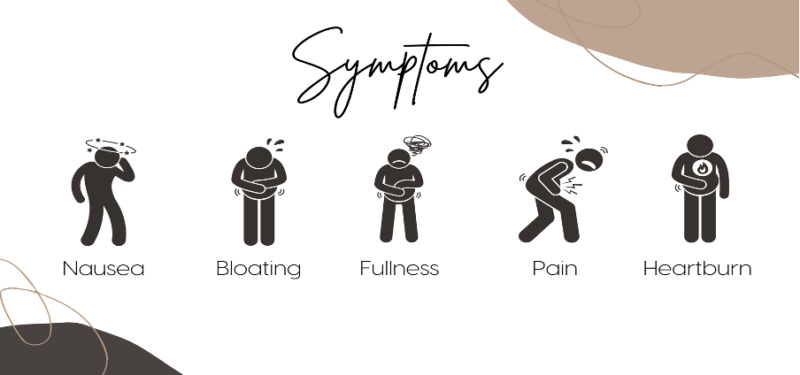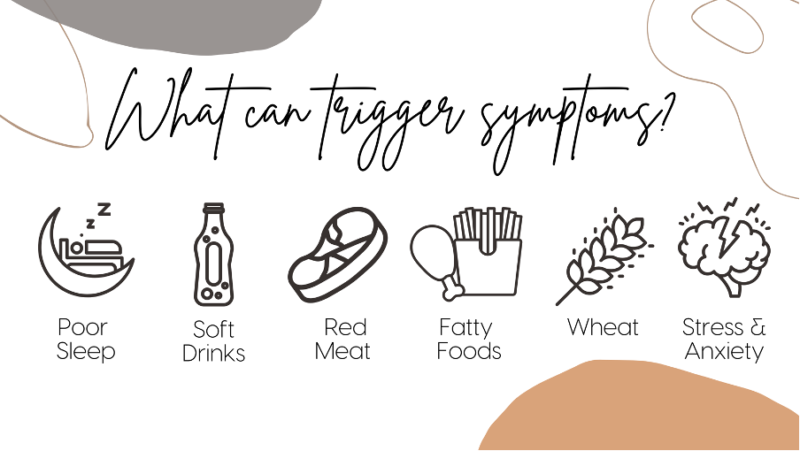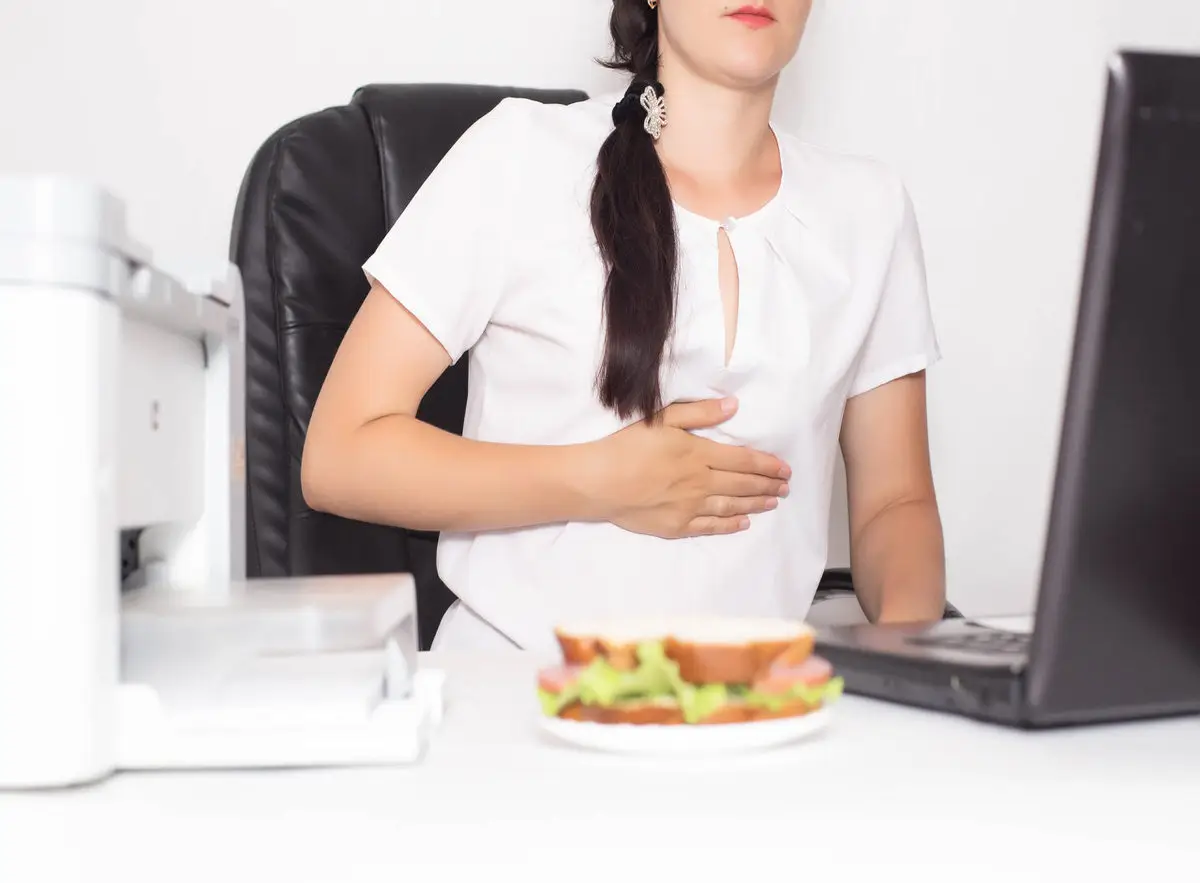Have you been told you have IBS but your symptoms are higher up than your bowel?
Maybe it’s not IBS at all.
Have you ever heard of functional dyspepsia?
Perhaps you may not have heard it by this name. Functional dyspepsia is often referred to as ‘indigestion’. It’s that persistent, uncomfortable middle or upper abdominal pain that can prevent you from finishing a meal. Functional dyspepsia can be chronic and wreak havoc on your quality of life… and it’s more common than you would think!
1 in 10 Australians are affected by Functional Dyspepsia and it’s more common in women.
What is Functional Dyspepsia?
Functional dyspepsia (FD) is a functional gastrointestinal disorder. These are a range of gut conditions that affect different parts of the gut, with the most well known being IBS. When normal functioning of the gut is disrupted, uncomfortable symptoms can result.
Some triggers are a ‘gut bug’, traveller’s diarrhoea, stressful life events or medications. BUT, when the symptoms are investigated all tests return as ‘normal’. As a result of this the problem is regarded as being to do with the functioning of the gut or the gut-brain interaction, rather than a ‘disease’!
It’s like your gut malfunctions with no ‘outside’ cause. This is good in that nothing sinister is happening to your gut, but not so good in that these symptoms sometimes persist for weeks, or even years.

What to do if you think you have FD.
It is important to discuss your symptoms with your GP first, to make sure that there really is nothing more sinister occurring in your gut. Your GP will use a checklist called the Rome IV criteria for this assessment, then may order a ‘scope’ test for a gastroenterologist to confirm there is no evidence of damage to your intestine. Depending on the nature and severity of your symptoms, your GP may discuss trialling a short term course of a reflux medication, or a medication usually prescribed for anxiety.
Reach out to a Dietitian
Although foods do not cause functional dyspepsia, they can certainly trigger symptoms, and are definitely an important part of FD management. You will need some help to work out which foods are problematic and what to replace them with.

Some people with FD tend to get symptoms after eating wheat, however this is not the same as those who have coeliac disease, so a diet that is completely gluten free may not be necessary. Other people report issues with all different high FODMAP foods or foods high in natural food chemicals. The foods you report as problematic give us clues in where to start with dietary planning.
There is also an association between functional dyspepsia and low grade inflammation as well as some disruptions to ‘friendly gut-bacteria’. Embarking on the journey of an ‘anti-inflammatory’ or ‘gut bacteria-friendly’ diet while managing your FD will certainly require some professional dietetic guidance. If there is no rhyme or reason to your symptoms, we can help you plan an approach towards managing your gut pain.
Gut-focused hypnotherapy?
A non-diet management approach can be considered as a complementary intervention alongside diet and medicine. The symptoms of functional dyspepsia occur during periods of eating and this can result in feelings of anxiety around food and mealtimes.
Our brain and gut are intricately linked. They are constantly talking to one another through nerves, signals and hormones. The gut has the power to influence the brain and the brain has the power to influence the gut.
Have you ever been so nervous for an event that you have felt sick to the stomach?
Gut-focused hypnotherapy aims to use this link between the brain and the gut to improve and alleviate the symptoms of people with IBS. It has shown some positive results with 70-80% of people reporting positive long-term improvements.
While you may be experiencing these symptoms with no identifiable outside ‘cause’, that doesn’t make them any less uncomfortable or painful! There are many different management options available from medications, diet and lifestyle changes, or perhaps even alternative medicine. You could even try a combination of all three… Ultimately whatever method you choose that provides you some relief is a win!
You don’t need to suffer in silence!
The team here at Help Yourself Nutrition and Dietetics are determined to support you through your journey to a healthier, happier gut. Make a booking for a video consultation with one of our gut health dietitians.

